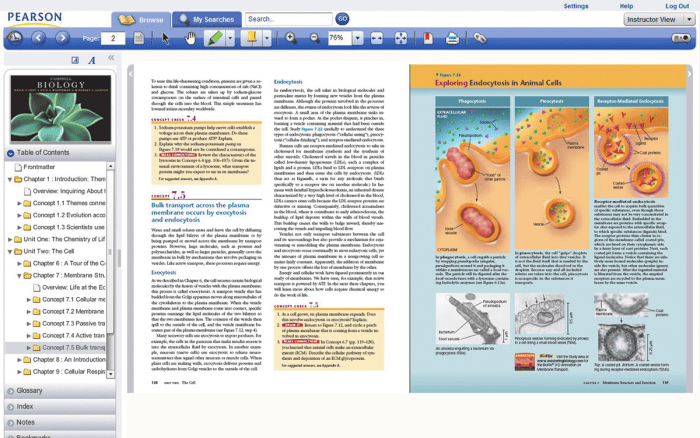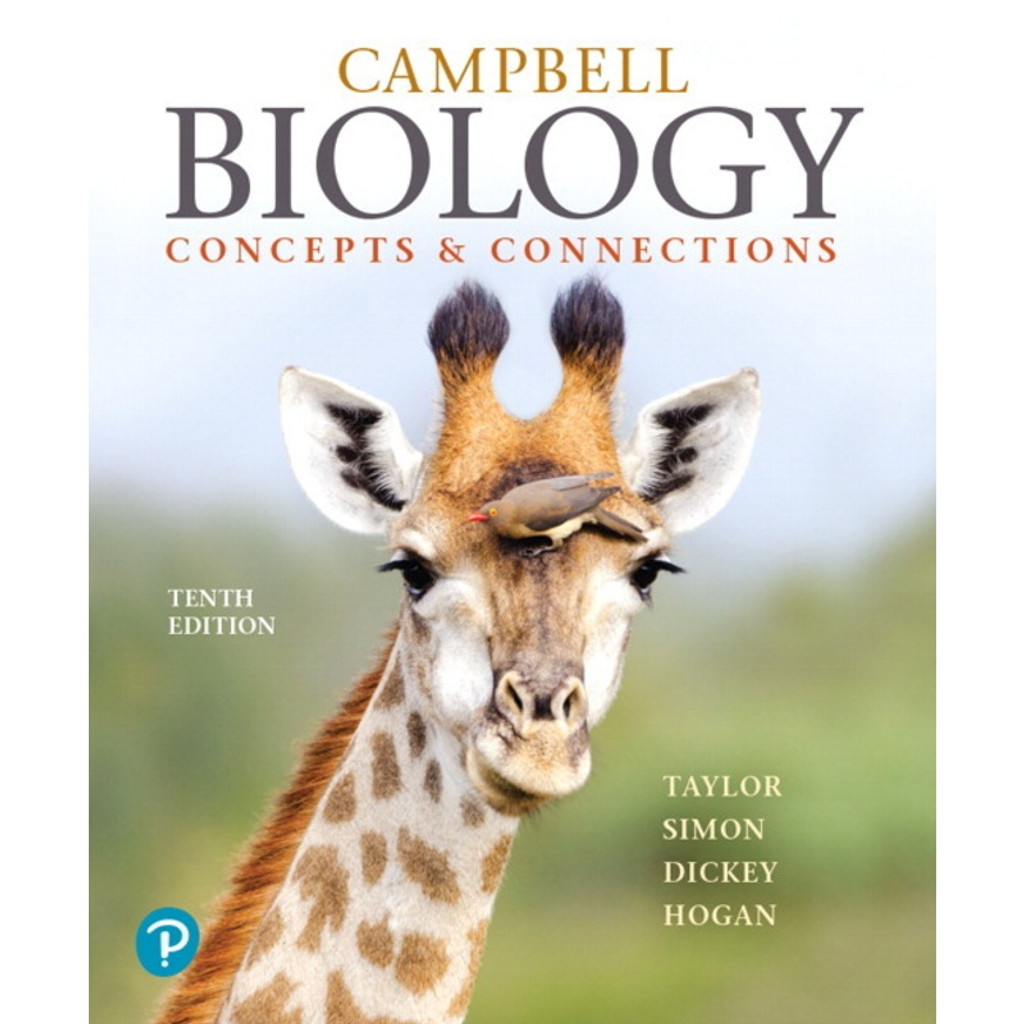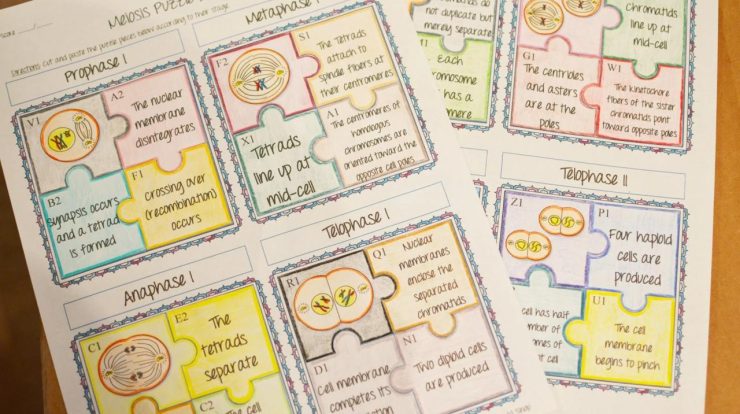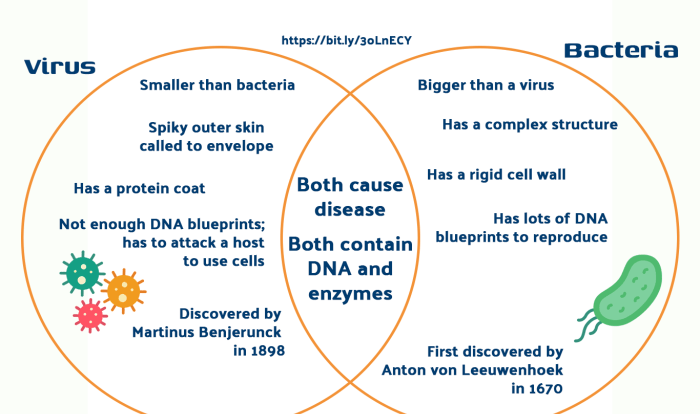Embark on an extraordinary journey with Biology Concepts and Connections 10th Edition, where the intricate tapestry of life unfolds before your eyes. This comprehensive guide delves into the fundamental principles of biology, revealing the interconnectedness of all living organisms and their environments.
Prepare to be captivated as we explore the fascinating world of cells, the building blocks of life, and unravel the secrets of genetics and heredity. Discover the impact of evolution on the diversity of life on Earth and witness the profound influence of technology on the field of biology.
Concepts of Biology

Biology is the scientific study of life. It encompasses a vast array of topics, from the smallest organisms, such as bacteria, to the largest, such as whales. Biologists seek to understand the structure, function, growth, origin, evolution, and distribution of living organisms.
Biology has a profound impact on our daily lives. It helps us to understand our own bodies, the food we eat, the medicines we take, and the environment in which we live. Biology also plays a vital role in addressing global challenges such as climate change, food security, and disease outbreaks.
History and Evolution of Biological Concepts
The history of biology dates back to ancient Greece, where philosophers such as Aristotle and Hippocrates made significant contributions to the field. Over the centuries, scientists have gradually expanded our understanding of life through observation, experimentation, and the development of new technologies.
One of the most important milestones in the history of biology was the publication of Charles Darwin’s “On the Origin of Species” in 1859. Darwin’s theory of evolution by natural selection revolutionized our understanding of the diversity of life on Earth.
Connections in Biology
Biology is a highly interconnected field. Different biological systems are interdependent and influence each other in complex ways.
Interconnections between Different Biological Systems
- Cells are the basic unit of life, and they are organized into tissues, organs, and organ systems. These systems work together to maintain homeostasis and perform essential life functions.
- Organisms interact with each other in various ways, such as competition, predation, and symbiosis. These interactions shape the structure and dynamics of ecosystems.
- Biological processes are interconnected at different levels of organization. For example, the molecular processes that occur within cells are influenced by the organism’s environment, and the behavior of individual organisms can affect the entire ecosystem.
Relationships between Organisms and Their Environments
Organisms are closely tied to their environments. They depend on their surroundings for resources such as food, water, and shelter. In turn, organisms can also impact their environments, for example, by altering the composition of the atmosphere or by changing the landscape.
Applications of Biology

Biological knowledge has a wide range of practical applications in various fields.
Practical Applications of Biological Knowledge
- Medicine:Biology is essential for understanding and treating diseases, developing new drugs, and improving patient care.
- Agriculture:Biology helps us to improve crop yields, develop new agricultural technologies, and address food security challenges.
- Environmental Science:Biology provides the foundation for understanding and protecting the environment, addressing issues such as climate change, pollution, and biodiversity loss.
- Biotechnology:Biology is used to develop new technologies, such as genetically modified organisms, biofuels, and pharmaceuticals.
Ethical Implications of Biological Advancements, Biology concepts and connections 10th edition
As biology advances rapidly, it is important to consider the ethical implications of our discoveries and applications. Ethical issues in biology include:
- Gene editing and the potential to modify human embryos
- The use of animals in research
- The impact of genetically modified organisms on the environment
Research Methods in Biology: Biology Concepts And Connections 10th Edition
Biological research involves a variety of methods, including:
Different Methods Used to Conduct Biological Research
- Observation:Scientists observe organisms in their natural habitats or in controlled laboratory settings.
- Experimentation:Scientists manipulate variables to test hypotheses and determine cause-and-effect relationships.
- Modeling:Scientists create mathematical or computer models to simulate biological systems and make predictions.
- Comparative Analysis:Scientists compare different organisms or systems to identify similarities and differences.
Importance of Experimental Design and Data Analysis
Experimental design and data analysis are critical to ensuring the validity and reliability of biological research. Scientists must carefully control variables, collect accurate data, and use appropriate statistical methods to analyze their results.
Role of Technology in Biological Research
Technology plays a vital role in biological research. Tools such as microscopes, DNA sequencing machines, and bioinformatics software have greatly expanded our ability to study living organisms.
FAQ Explained
What are the key concepts covered in Biology Concepts and Connections 10th Edition?
This comprehensive guide covers the fundamental principles of biology, including cell biology, genetics, evolution, ecology, and the applications of biological knowledge in various fields.
How does this book help students understand the interconnectedness of life?
Biology Concepts and Connections 10th Edition emphasizes the interconnections between different biological systems, organisms, and their environments, providing a holistic understanding of the living world.
What are the practical applications of biological knowledge discussed in this book?
This book explores the practical applications of biology in fields such as medicine, agriculture, and environmental conservation, highlighting the impact of biological advancements on solving real-world problems.


